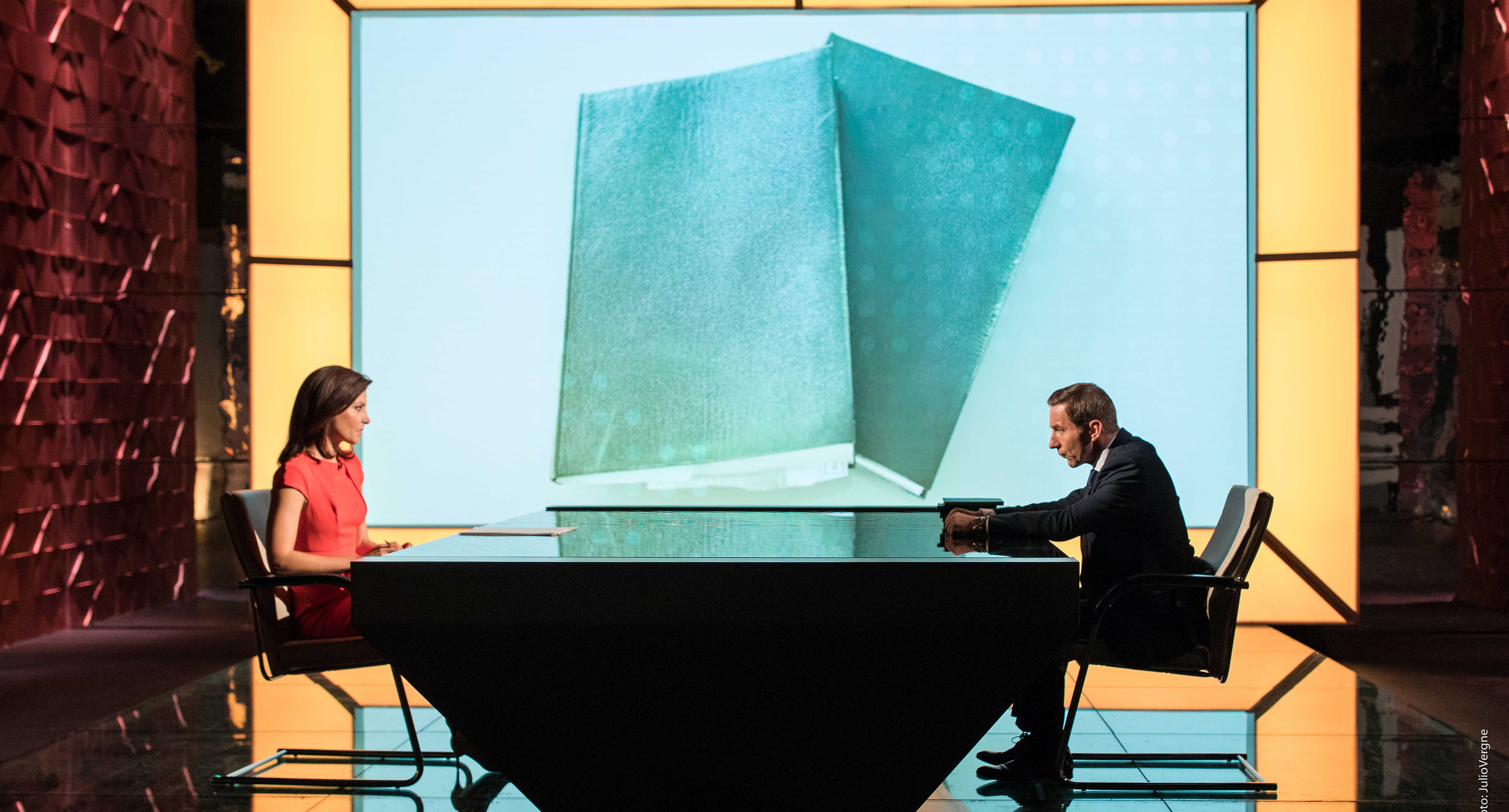Toronto: Rodrigo Sorogoyen on ‘The Realm,’ Corruption, Having the Politicians We Deserve
By John Hopewell
LOS ANGELES (Variety.com) – The opening scene of “El Reino” (The Realm), which world premieres in Toronto’s World Contemporary Cinema, is a declaration of intentions: a 1 minutes 40 seconds tracking shot to building electronic pulse music on the soundtrack as Manuel López Vidal, party vice secretary, tipped to become the next president of his region, finishes up a cell phone conversation on a beach, strides down an alley-way. He bursts into the kitchen of a beachside restaurant, picks up a tray of red shrimps, brings it to a table to serve his fellow senior politicians. From then on, as a corruption scandal erupts in the region and Lopez Vidal takes the rap, he hardly stops in this – for Spain – pioneering, kinetic political thriller, pacing the corridors of power, desperately trying to negotiate his survival. “The Realm” is Sorogoyen’s follow-up to serial killer procedural “May God Save Us,” which marked out him out as one of Spain’s foremost young crossover talents with a ready following in France. Bowing Sept. 7 at Toronto, then segueing to San Sebastian, where it plays in main competition, Sorogoyen’s “The Realm” re-teams most of “May God Saves Us’” backers: Tornasol and Atresmedia Cine produce, Latido Films sells international, Le Pacte and Mondex CIE co-produce out of France. Variety chatted to Sorogoyen about a film which, released by Warner Bros. in Spain, should be one of Warner one of its big homegrown upscale box office plays.
From the opening scene, Manuel López Vidal is in constant motion, walking, driving, even at leisure, enjoying a speed-boat trip. There’s a suggestion that he never stops for one moment to reflect on what he’s doing, the multiple scams he’s engineered. Could you comment?
Indeed, Manuel is conceived as a “non-stop” character. That allowed for a propulsive rhythm to the film, a sense that there’s always a destination beckoning, but it’s also an allegory for our time. We live over-excited, over-stimulated: always stressed with millions of (often unnecessary) things to do. That leads to a lack of reflection. Could that lack of reflection allows our protagonist to live without ever feeling a certain guilt? I’m not sure, it’s just an idea.
Classic film noir exposed the heinous crime of a supposed icon of honesty in high places. “The Realm” expands the focus to suggest that corruption, dishonesty is an endemic practice, the norm, of a whole ruling class. Again, could you comment?
First we wanted to talk about the political class, and its, on many occasions, lack of ethics. But ultimately, and more importantly, we want to reflect on how this lack of ethics extends to our society. We have the politicians we deserve. That Donald Trump is president of the United States is a reflection on how American society has evolved, of what it longs for, what it fears. It’s no coincidence.
As a character, Manuel Lopez Vidal’s suit is a little to sharp, too tight. He’s slightly too loud at the first lunch. There’s a suggestion that though he’s central to his party’s corruption, he does not have the class of many other politicians. Hence, he takes the rap. Would you agree?
By giving Manuel López Vidal such a personality we wanted rather to emphasize that our protagonist has something different about him, which marks him apart from the others. Not so much that he’s the ideal person to take the rap but but that this difference makes him special. Only someone like him would face off with the whole political system which is conspiring for his fall.
What were your main guidelines when co-writing and directing “The Realm”?
Mainly two: Indignation as citizens at seeing the repeated, indecent, arrogant and criminal behavior of a large number of public officials, of a ruling class in short; and the lack of a sense of rejection and opposition to this that we as citizens have shown for too long. And, second, try to provide some kind of understanding of these subjects, so our society and ultimately ourselves.
Last decade, Spain was best-known for its upscale horror films. Now it has a strong line in crime thrillers, both in movies and in TV. Why do you think the number of thrillers’ has grown in Spain?
There are always a multitude of causes interwoven and often hidden, but I could name two: One, the buoyant performance, with critics and at the box office, of some thrillers. Also, that film noir has always historically been the most effective movie type to describe the sewage of society. In the last decade, we’ve needed to talk about these sewers, to analyze and denounce what has been happening in our country on a moral, political and social level.
What lessons did you learn from the reception in Spain and indeed abroad – in France, for instance – of “May God Save Us”?
From its reception in Spain: That the Spanish industry suffers from very bad health. It is tremendously difficult for people to go to the movies. Still, “May God Save Us” was well received, and the reviews said very kind things. I think, however, that we have to learn a lot from a country like France at a cultural level. For the protectionism and the treatment its culture enjoys. Making a movie there is not high-risk like in Spain.

